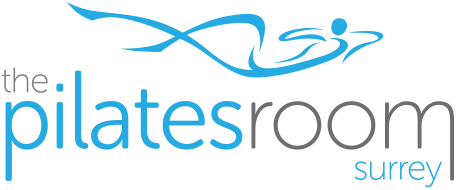
Frequently
asked questions
Why should I practice Pilates?
The Pilates method of exercise offers a non-impact approach to better posture and stronger, leaner muscles. It compliments aerobic exercises and can be used to help you recover after injury or simply to maintain good health and fitness.
How many people are in each class?
There are a maximum 9 clients per class. Small classes enable the instructor to work closely with each client, ensuring they are working at a level specifically suited to their own need and ability, not to mention working safely and effectively. As a result of this our clients progress quickly, noting the benefits almost straight away.
How often should I attend?
Like many exercise programs the more you train in the Pilates method, the sooner you will see the results. But let's be realistic, for many of us having the time available for more than one session per week just isn't on the agenda! Some of the mobilising exercises are safe enough to be practiced at home.
What should I wear and bring to class?
Comfortable close-fitting clothes are best, because your instructor will want to make sure your body is moving with precision. No shoes are required, non slip socks would be advisable during the cooler months. Pilates mats and equipment are supplied. You may wish to bring a drink with you, especially in warmer weather. It is important to stay hydrated during exercise.
Is equipment used in the classes?
Classes are essentially mat-based. We do incorporate the following pieces of equipment into the mat workouts; thera-band, small Pilate’s ball, large Swiss ball, foam roller, hand weights, mini-loop resistance bands and small massage (spikey) balls.
Can I cross-train with Pilates?
Yes, Pilates is ideal for cross-training purposes, as it will help create a better understanding of posture and how this relates to all forms of exercise. In addition, it will help to correct postural faults that can develop through repetitive forms of exercise. A Pilates class will incorporate some deep stretches and muscle release which are greatly beneficial for sports specific training.
Will I lose weight doing Pilates?
Whilst Pilates is not a cardiovascular workout so won’t burn fat, it will tone the muscles; leading to a more streamline shape. A combination of cardiovascular training with Pilates is the perfect combination for improving overall fitness.
Is Pilates safe when pregnant?
It is recommended that you consult your doctor before embarking on any exercise program when pregnant. If there is history of miscarriage or bleeding during pregnancy it would be advised to stop training. Our instructors all have ante-natal / post-natal qualifications. Open communication and feedback is extremely important between every pregnant client and her instructor. Exercises will need to be modified during the pregnancy.
I am over 50 years of age; do you think Pilates will be too strenuous for me?
It should not be too strenuous. Pilates caters for everyone from beginners to those who are more advanced and is suitable for all age groups. It will help improve balance and reduce the likelihood of falls. As with any beginner, your instructor will start you on the easier levels, progressing slowly to more advanced levels as and when you are ready.
How different is Pilates from Yoga?
There are some similarities between Yoga and Pilates. However, Yoga is mainly focused on holding a static position with no repetitions and some extreme stretches, whereas Pilates exercises “flow” into each other. In Pilates, before executing the move, neutral posture is found, the correct resting length for muscles reducing wear and tear on your joints. Pilates concentrates on challenging the “core” muscles and moving the limbs. Both Yoga and Pilates focus on mindfulness, body awareness, balance and breath.
Does Pilates concentrate on breathing?
Almost all Pilates exercises are taught with a breath sequence, but it isn't the main emphasis of the technique. Breathing can sometimes take a while to grasp, once mastered it helps enormously with maintaining correct core muscle control and slowing movements down.
Does Pilates help you become more flexible?
Yes! Pilates will strengthen your body and increase your range of movement as you work through the ranges of flexion, extension, rotation and lateral flexion.
